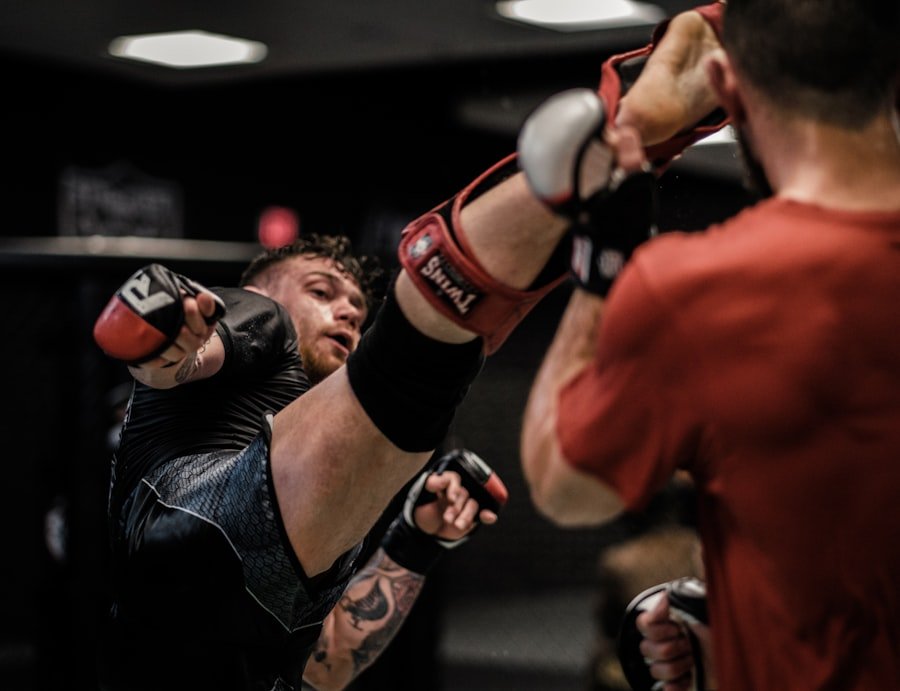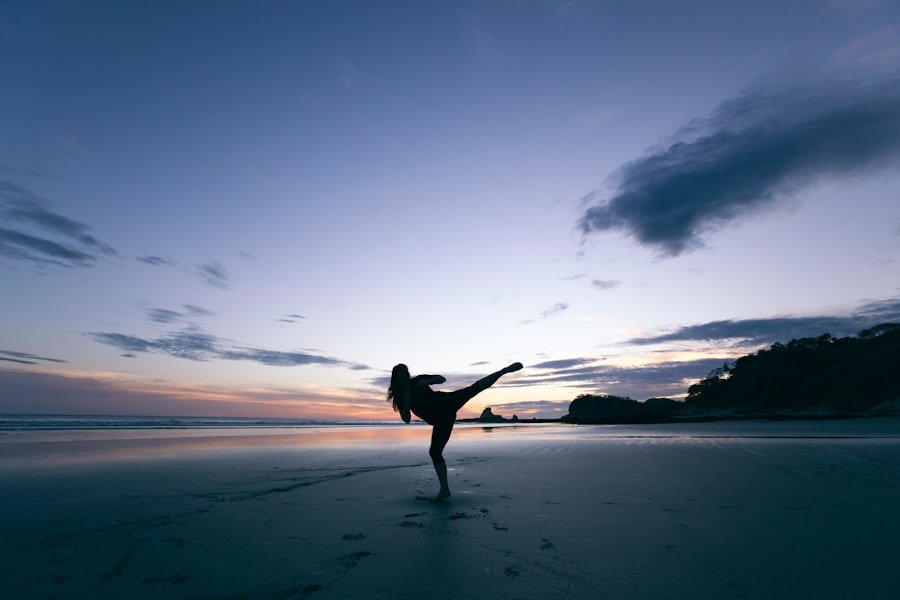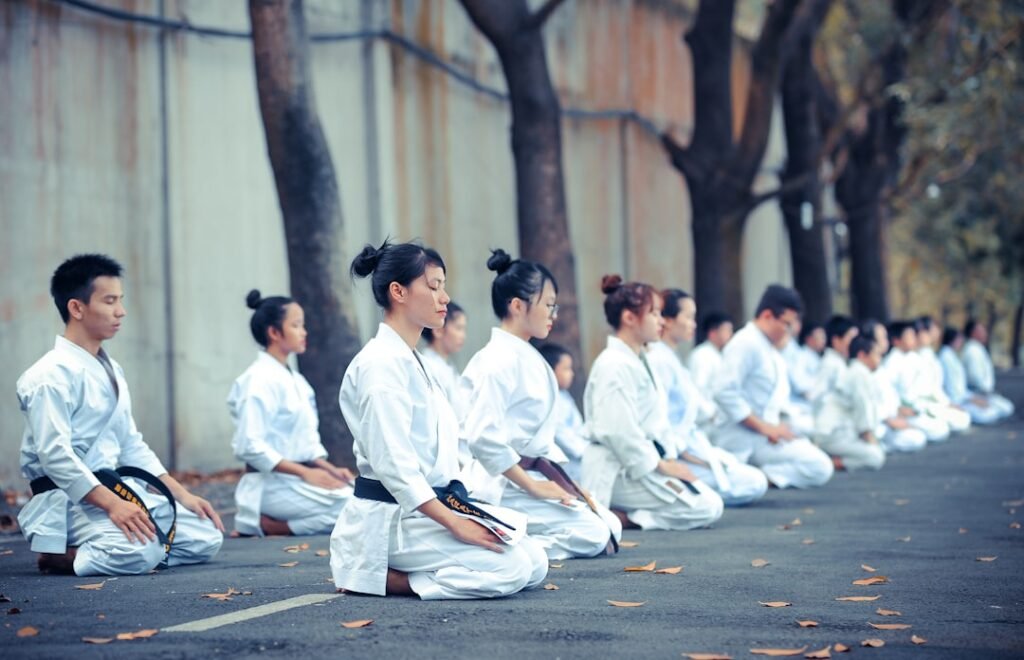Chinese martial arts, often referred to as Kung Fu or Wushu, have found a vibrant home in Oslo, Norway. The city, known for its rich cultural tapestry and appreciation for diverse traditions, has embraced these ancient practices that blend physical prowess with philosophical depth. As more residents seek holistic approaches to fitness and self-discipline, the allure of Chinese martial arts has grown significantly.
In Oslo, practitioners of all ages are discovering the myriad benefits that come from engaging in these time-honoured disciplines, which not only enhance physical fitness but also foster mental clarity and emotional resilience. The growing interest in Chinese martial arts in Oslo can be attributed to various factors, including the increasing globalisation of culture and the desire for individuals to connect with practices that promote well-being. Local schools and dojos have sprung up, offering classes that cater to beginners and advanced practitioners alike.
This burgeoning community is not just about learning combat techniques; it is also about understanding the deeper philosophies that underpin these martial arts, making it a holistic journey for many enthusiasts. Spaces are filling up fast! Register for Chinese classes at the LC Chinese School in Oslo today.
Table of Contents
ToggleSummary
- Chinese martial arts in Oslo offer a unique opportunity to learn about traditional fighting techniques and philosophies.
- The philosophy behind Chinese martial arts emphasizes balance, harmony, and self-improvement through physical and mental discipline.
- The history and origins of Chinese martial arts date back thousands of years and are deeply rooted in Chinese culture and traditions.
- Chinese philosophy has had a significant influence on the practice of martial arts in Oslo, shaping the way it is taught and practiced.
- Mastering traditional techniques of Chinese martial arts requires dedication, patience, and a deep understanding of the art form.
Understanding the Philosophy Behind Chinese Martial Arts
At the heart of Chinese martial arts lies a profound philosophy that transcends mere physicality. These practices are deeply rooted in concepts such as balance, harmony, and the interplay of Yin and Yang. The philosophy encourages practitioners to cultivate not only their physical abilities but also their mental and spiritual well-being.
This holistic approach is what sets Chinese martial arts apart from many other forms of physical training. It invites individuals to explore their inner selves while developing skills that can be applied in various aspects of life. In Oslo, practitioners are increasingly drawn to this philosophical dimension.
Many find that the teachings of Chinese martial arts resonate with their personal journeys, offering insights into patience, perseverance, and self-awareness. The emphasis on mindfulness and presence during training sessions allows individuals to connect with their bodies and minds in a way that is often lacking in modern life. This philosophical grounding transforms the practice from a mere sport into a way of life, fostering a sense of purpose and direction for those who engage with it.
Exploring the History and Origins of Chinese Martial Arts

The history of Chinese martial arts is as rich and varied as the culture from which it originates. Dating back thousands of years, these practices have evolved through dynasties, influenced by historical events, philosophical movements, and cultural exchanges. Initially developed for military purposes, martial arts gradually transformed into a means of personal development and self-defence.
The legendary tales of warriors and sages have contributed to the mystique surrounding these arts, making them an integral part of Chinese heritage. In Oslo, the historical context of Chinese martial arts is often explored in classes and workshops. Instructors share stories of ancient masters and their contributions to the evolution of various styles, such as Tai Chi, Wing Chun, and Shaolin Kung Fu.
This historical perspective enriches the learning experience for students, allowing them to appreciate not only the techniques but also the cultural significance behind them. As practitioners delve into this history, they gain a deeper understanding of their practice and its place within a broader narrative that spans centuries.
The Influence of Chinese Philosophy on Martial Arts in Oslo
Chinese philosophy has had a profound impact on the development and practice of martial arts, shaping not only techniques but also the mindset of practitioners. Concepts from Confucianism, Taoism, and Buddhism permeate the training environment, encouraging individuals to cultivate virtues such as humility, respect, and compassion. In Oslo, this philosophical influence is evident in the way martial arts are taught and practised.
Instructors often incorporate discussions about these philosophies into their lessons, helping students understand the deeper meanings behind their movements. The integration of Chinese philosophy into martial arts training fosters a sense of community among practitioners in Oslo. As students engage with these ideas, they find common ground in their shared values and aspirations.
This connection extends beyond the dojo, creating bonds that enrich their lives outside of martial arts. The emphasis on philosophical understanding encourages practitioners to approach challenges with a balanced mindset, promoting resilience and adaptability in both training and daily life.
Mastering the Traditional Techniques of Chinese Martial Arts
Mastery of traditional techniques is a cornerstone of Chinese martial arts training. Each style encompasses a unique set of movements, forms, and applications that require dedication and practice to master. In Oslo, students are introduced to a variety of techniques that range from fluid Tai Chi movements to dynamic Kung Fu forms.
The journey towards mastery is not merely about physical skill; it also involves understanding the principles behind each technique and how they relate to the broader philosophy of martial arts. As practitioners progress in their training, they often find themselves drawn to specific styles that resonate with their personal preferences and goals. Some may gravitate towards the meditative aspects of Tai Chi, while others may be captivated by the explosive power of Wing Chun.
Regardless of the chosen path, the commitment to mastering traditional techniques fosters a sense of achievement and personal growth. In Oslo’s martial arts community, this pursuit of excellence is celebrated, encouraging individuals to push their limits while supporting one another along the way.
The Role of Discipline and Mindfulness in Chinese Martial Arts

Discipline is a fundamental aspect of Chinese martial arts that extends beyond physical training. It encompasses mental focus, commitment to practice, and adherence to ethical principles. In Oslo’s martial arts schools, students learn that discipline is not merely about following rules; it is about cultivating a mindset that values perseverance and self-control.
This discipline translates into various areas of life, helping individuals develop resilience in the face of challenges. Mindfulness is another crucial element woven into the fabric of Chinese martial arts training. Practitioners are encouraged to be present in each moment, whether they are executing a form or engaging in sparring.
This focus on mindfulness enhances not only performance but also overall well-being. In Oslo, students often report feeling more centred and grounded as they incorporate mindfulness practices into their daily routines. The combination of discipline and mindfulness creates a powerful synergy that empowers individuals to navigate life’s complexities with grace and confidence.
Incorporating Chinese Martial Arts into Modern Lifestyles in Oslo
As modern life becomes increasingly fast-paced and demanding, many individuals in Oslo are seeking ways to incorporate the principles of Chinese martial arts into their daily routines. The adaptability of these practices allows for integration into various lifestyles, whether one is a busy professional or a student juggling multiple responsibilities. Classes are designed to accommodate different schedules, making it easier for people to engage with martial arts without feeling overwhelmed.
Moreover, the emphasis on balance and harmony within Chinese martial arts resonates with those striving for equilibrium in their lives. Practitioners often find that dedicating time to training helps them manage stress and maintain focus amidst life’s distractions. In Oslo’s urban environment, where hustle and bustle can take precedence over self-care, the practice of Chinese martial arts serves as a sanctuary—a space where individuals can reconnect with themselves and cultivate inner peace.
The Importance of Respect and Etiquette in Chinese Martial Arts
Respect and etiquette are foundational principles within Chinese martial arts that shape interactions among practitioners. From bowing upon entering the dojo to addressing instructors with honourifics, these customs foster an environment of mutual respect and camaraderie. In Oslo’s martial arts community, students learn that these practices are not merely formalities; they embody the values that underpin their training.
The emphasis on respect extends beyond the dojo walls; it influences how practitioners engage with one another in everyday life. As students cultivate respect for their instructors, peers, and themselves, they develop a deeper understanding of interpersonal relationships. This culture of respect creates a supportive atmosphere where individuals feel valued and encouraged to grow together on their martial arts journey.
The Health and Wellness Benefits of Practicing Chinese Martial Arts
The health benefits associated with practising Chinese martial arts are numerous and well-documented. Regular training promotes physical fitness through improved strength, flexibility, balance, and coordination. In Oslo, many individuals have turned to these practices as an alternative to conventional exercise routines, finding joy in the dynamic movements and mindful approach inherent in martial arts.
Beyond physical fitness, practitioners often experience enhanced mental clarity and emotional stability as they engage with the meditative aspects of training. The focus on breath control and mindfulness during practice can lead to reduced stress levels and improved overall well-being. As more people in Oslo recognise these health benefits, participation in Chinese martial arts continues to grow—transforming lives through holistic wellness.
Finding Community and Connection through Chinese Martial Arts in Oslo
One of the most rewarding aspects of practising Chinese martial arts in Oslo is the sense of community that develops among practitioners. As individuals come together to train, share experiences, and support one another’s growth, lasting friendships often emerge. This sense of belonging fosters an environment where students feel encouraged to challenge themselves while celebrating each other’s achievements.
Instructors play a vital role in nurturing this community spirit by creating inclusive spaces where everyone feels welcome regardless of skill level or background. Events such as workshops, demonstrations, and social gatherings further strengthen these connections within the Oslo martial arts community. Through shared experiences both on and off the mat, practitioners forge bonds that extend beyond their training—creating a network of support that enriches their lives.
Embracing the Cultural and Spiritual Elements of Chinese Martial Arts
Chinese martial arts are steeped in cultural significance that extends far beyond physical techniques. They embody centuries-old traditions that reflect values such as harmony with nature, respect for ancestors, and spiritual growth. In Oslo’s diverse landscape, practitioners have the opportunity to explore these cultural elements through classes that incorporate traditional music, philosophy discussions, and even calligraphy.
Embracing these cultural aspects allows practitioners to connect more deeply with their practice while gaining insights into the broader context from which it originates. Many students find that engaging with these spiritual dimensions enhances their overall experience—transforming martial arts into a journey of self-discovery rather than just a physical endeavour. As interest in Chinese culture continues to flourish globally—including in Oslo—the importance of understanding its cultural roots becomes increasingly relevant for practitioners seeking authenticity in their training journey.
In conclusion, as we explore the multifaceted world of Chinese martial arts within Oslo’s vibrant community—ranging from its rich history to its profound philosophical underpinnings—it becomes clear that these practices offer much more than mere physical training; they provide pathways towards personal growth through discipline mindfulness respect connection health wellness culture spirituality—all essential elements contributing towards holistic living today! For those eager to embark on this transformative journey or deepen their understanding further—LC Chinese School stands out as an exceptional institution offering comprehensive courses tailored specifically for learners at all levels! With experienced instructors guiding students through traditional techniques while emphasising cultural appreciation—LC Chinese School serves as an ideal gateway into embracing both physical mastery alongside enriching one’s knowledge about this ancient art form!







